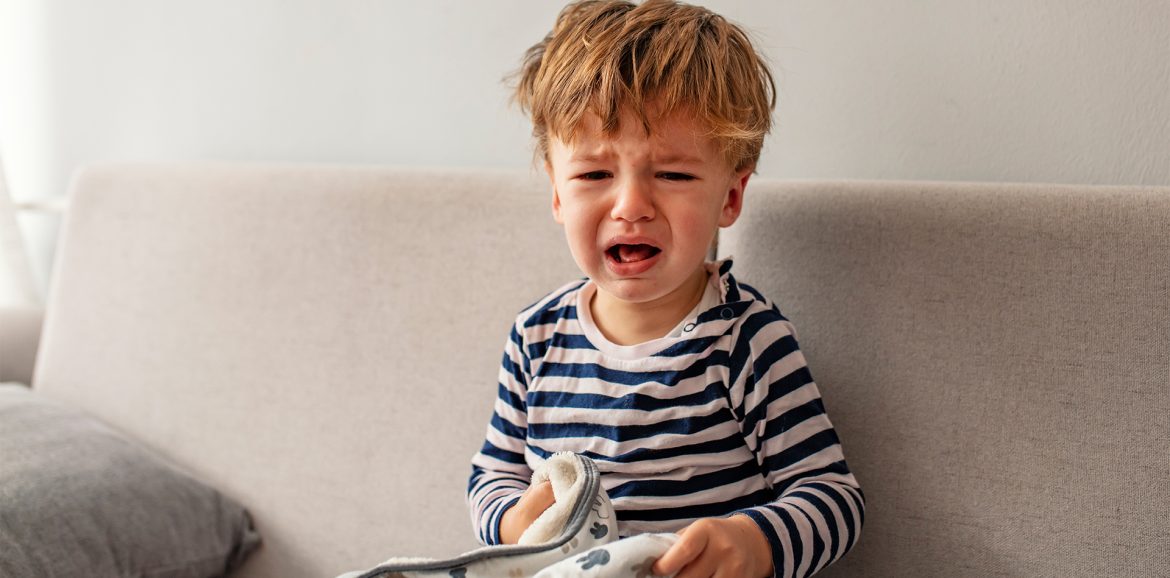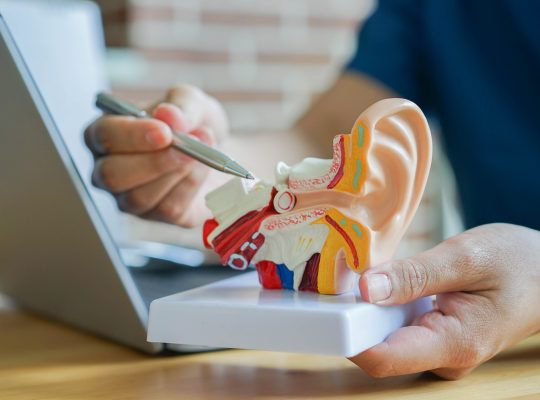Ear infections are common in young children. This is due to the anatomy of their ears. The Eustachian tube, which connects the middle ear to the pharynx, is shorter and narrower in children than in adults. This allows bacteria and viruses to enter the ear more easily and cause inflammation. In addition, children have a less developed immune system, making them more susceptible to infections.
Repeated ear infections: when should you worry?
If your child gets an occasional ear infection, it is annoying, but usually not a concern. However, if the ear infections keep recurring (more than three times in six months or four times in a year), it may indicate an underlying problem. Recurrent ear infections can lead to hearing loss, speech and language delays and chronic middle ear problems. Therefore, it is important to take timely action.
Symptoms of an ear infection in children
Recognizing an ear infection in children is sometimes tricky, especially in young children who are not yet able to clearly indicate what is bothering them. Watch for the following symptoms:
- Ear pain or pulling at the ear
- Fever
- Irritability and tearful behavior
- Difficulty sleeping
- Impaired hearing or reaction to sounds
- Runny ear (fluid or pus coming out of the ear)
What can you do at home with an ear infection?
There are several ways to help your child with an ear infection at home:
- Analgesia: Give paracetamol or ibuprofen according to the recommended dosage to reduce pain and fever.
- Warmth: A warm compress against the ear can provide relief.
- Adequate rest and hydration: Make sure your child drinks enough and rests well.
- Nasal drops or a nasal spray: If a cold is the cause, nasal drops can help keep the Eustachian tube open.
When to see the family doctor?
Although many ear infections go away on their own, it is important to consult a doctor in the following situations:
- The ear infection persists for more than three days.
- Your child has a high fever (above 39°C) or looks very sick.
- Pus or blood comes out of the ear.
- Your child repeatedly gets ear infections.
- There is hearing loss or balance problems.
Possible medical treatments
If a child suffers from frequent ear infections, the family doctor or ENT specialist may consider various treatments:
- Antibiotics: Only if the infection is severe or does not go away on its own.
- Eardrum tubes: Small tubes placed in the eardrum to help drain fluid from the middle ear and prevent inflammation.
- Adenoid removal: Sometimes an enlarged nasal tonsil (adenoid) can contribute to recurrent ear infections, and removal may offer relief.
What can you do to prevent ear infections?
Although ear infections are not always preventable, you can take some measures to reduce the chances:
- Washing hands: This helps reduce viruses and bacteria.
- Breastfeeding: Breastfeeding can help strengthen the immune system.
- Smoke-free home: Exposure to cigarette smoke increases the risk of ear infections.
- No bottle feeding in the lying position: Prevent milk from entering the Eustachian tube by having your child drink in an upright position.
- Vaccinations: Have your child vaccinated against pneumococcus and influenza to reduce infections.
How do you deal with the impact on hearing?
If your child has had repeated ear infections, it is wise to have hearing tested. Temporary hearing loss can affect speech and language development. In some cases, an audiologist (that’s us!) or ENT doctor can provide additional advice on how best to protect and support your child’s hearing.
Summary
Recurrent ear infections in children are annoying and can cause long-term problems. Fortunately, there are many ways to treat and prevent them. Keep a close eye on the symptoms and call a doctor in time if the ear infections keep returning. With the right approach, your child can soon be symptom-free again!








